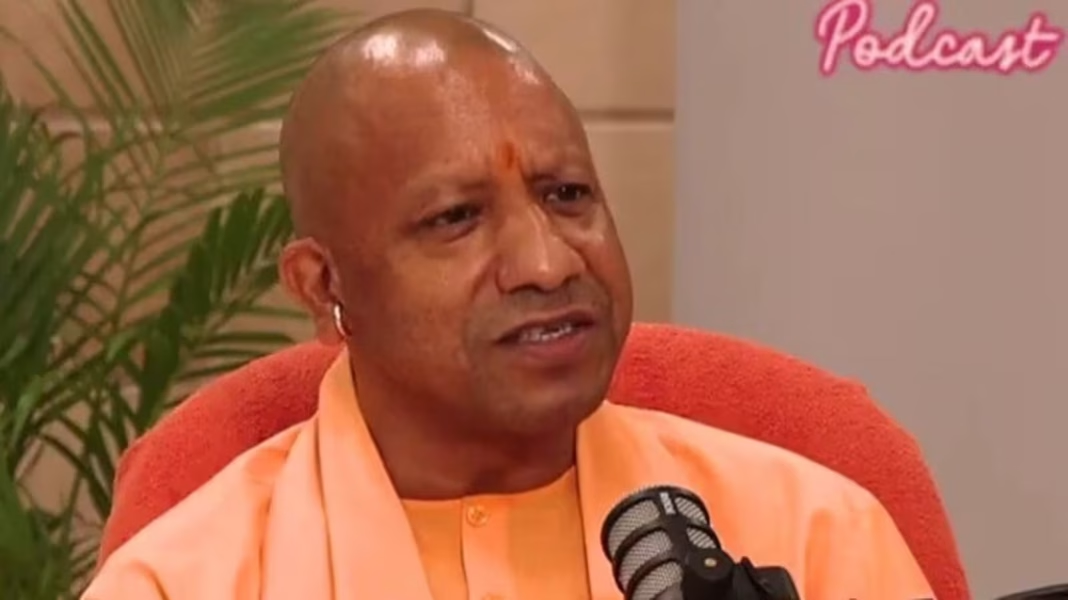In a recent interview with Smita Prakash on ANI, Uttar Pradesh Chief Minister Yogi Adityanath made significant statements about how Hindus provide a sense of safety to everyone in India. His remarks sparked discussions about the role of Hindu society in fostering security and harmony, particularly in contrast with historical and contemporary examples from neighboring countries.
The Assertion of Safety for Muslim Families
Adityanath asserted that a Muslim family living among 100 Hindu families remains safe and enjoys the freedom to practice its religious beliefs. This claim highlights the deeply ingrained values of tolerance and acceptance that Hindus have upheld for centuries. Hindu society, rooted in Sanatan Dharma, has always embraced diversity and ensured that those of different faiths find security within its fold.
He pointed out that under his administration, communal violence has significantly decreased since 2017. The absence of riots and unrest has reinforced an environment where both Hindus and Muslims practice their respective religions without fear. Statistical evidence supports his assertion, showing a decline in communal tensions in Uttar Pradesh, a state that has historically witnessed religious conflicts. This stability reflects the inherent ethos of Hindu society, which prioritizes dharma and peaceful coexistence.
A Critical Question: The Reverse Scenario
However, Adityanath posed a provocative question: “Can 50 Hindu families feel safe among 100 Muslim families?” He answered with a firm no, suggesting that Hindus cannot expect the same level of security in such a demographic scenario. He based this statement on historical observations and the present-day struggles Hindus face in regions where they are a minority.
Historical Context: Bangladesh and Pakistan
Adityanath compared the situation to Bangladesh and Pakistan, providing a critical backdrop for his argument. In these countries, Hindus have faced systemic discrimination, violence, and persecution. Reports document a surge in attacks on Hindu temples, homes, and individuals, particularly during political upheavals or religious festivities.
For example, during the Durga Puja celebrations in Bangladesh, numerous incidents of violence targeted Hindus, including temple vandalism and physical assaults on worshippers. These events highlight the precarious position of Hindus in a predominantly Muslim society, where mob violence and societal discrimination frequently threaten them. The contrast with Bharat is stark—where Hindus, despite being the majority, ensure that minorities live with dignity and religious freedom.
Adityanath emphasized these examples to support his belief that Hindus have historically exhibited unparalleled tolerance and generosity toward other faiths. They have not only allowed Muslims to thrive within their communities but have also protected their religious rights, temples, and cultural traditions. The same level of acceptance does not always exist under different demographic circumstances. His assertion raises critical questions about religious tolerance and the unique role of Hindus in fostering a harmonious society.
The Nature of Religious Coexistence
Adityanath’s comments suggest that the safety of communities directly depends on the values of the majority population. Hindu society, rooted in non-violence, dharma, and universal well-being, has ensured peaceful coexistence for centuries. He argued that while Hindus can live harmoniously with Muslims, historical precedents in other countries indicate that Hindus often face persecution when they become minorities. This perspective underscores the need to recognize the invaluable role Hindus play in upholding peace and protecting all religious groups.
Addressing Vote Bank Politics
In his interview, Adityanath criticized politicians who engage in “vote bank politics,” accusing them of exploiting religious identities for electoral gains. He specifically called out leaders like Asaduddin Owaisi for fostering divisions among communities rather than promoting unity. His critique underscores his administration’s commitment to maintaining the Hindu ethos of communal harmony by prioritizing law and order over political expediency.
Yogi Adityanath’s interview provides a thought-provoking examination of how Hindus have ensured safety for all religious communities in India. By drawing parallels with Bangladesh and Pakistan, the vulnerabilities Hindus face when demographic balances shift and reinforces the need to uphold the values of Sanatan Dharma!


